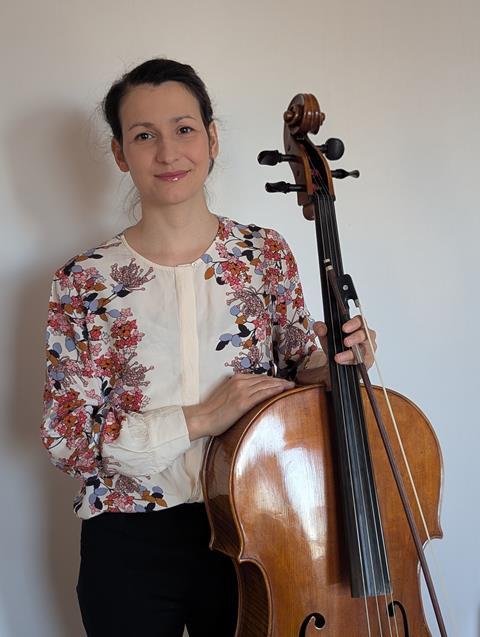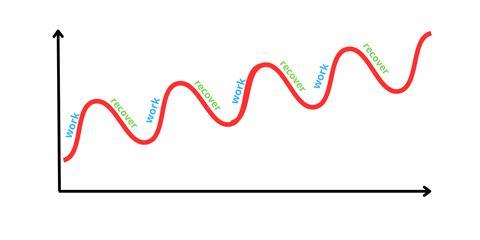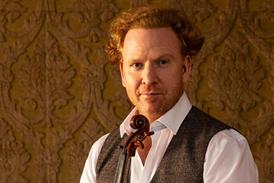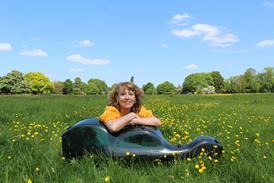Cellist and researcher Joanna Latała examines how time away from practice and your instrument will help your performance in the long run

Read more Featured Stories like this in The Strad Playing Hub
For most of my life, I believed the key to becoming a great musician was simple: work harder and practise more. As a child, I spent hours with my instrument daily. As a teenager, I upped the ante to six hours a day. By the time I was a student, I was practising for ten to twelve hours every single day. While this dedication made me a highly technical performer, I now realise it was also my biggest mistake.
The Power of Taking a Day Off
In the life of a musician, weeks are packed with rehearsals and concerts. Yet, what do most of us do on our rare days off? We go back to the practice room to prepare for the next project. I’ve come to understand that this is a mistake.
Taking one day off each week has transformed my playing. Sundays are my sacred day of rest. When I return to my cello on Monday, my playing feels refreshed, my focus sharper, and my technique improved. Why does this happen? Because rest allows my body and mind the time they need to recover and reset.
During my day off, I avoid thinking about my instrument. I might go for a walk, spend time with family, read a book, or enjoy a coffee with friends. This space away from constant practice gives me a new perspective. On Mondays, I can see my progress more clearly and identify areas that need improvement with fresh eyes.
It’s not that we work too hard. It is that we do not recover enough’- ’The Power of Full Engagement’ by Jim Loehr and Tony Schwarz
The Importance of Rest After High-Pressure Performances
Resting after a big performance is equally critical. As students, we instinctively knew to take a breather after school recitals. But as professionals, concerts often feel routine, and we lose sight of the need to recharge.
After my first few auditions, I was so physically and mentally drained that I couldn’t pick up my cello for a week. My hands ached, my muscles were fatigued, and my mind was all over the place. At the time, I thought something was wrong with me. Now, I understand this is a normal part of recovery after performing under intense pressure.
Your body and mind both need time to recover after high-stress performances. Think of athletes: after running a marathon, they don’t immediately start training for another race. They allow their bodies to rest and recover. As musicians, we need to treat our bodies with the same respect. If we don’t, we risk burnout and long-term injury.
Mentally, recovery is just as vital. It gives us the opportunity to reflect on our performance. What went well? What could have been better? By stepping back and analysing from a distance, we can identify areas for growth and feel a renewed sense of purpose.

The Olympic Secret: Resting Before a Performance
One of the most surprising lessons I’ve learned is the importance of resting before a performance. I vividly remember the first time my coach told me to start practising less in the two weeks leading up to a big concert. At first, I thought he was joking. But I trusted him and gave it a try.
In those final weeks, I focused on mental training, confidence-building exercises, and refining my musical interpretations. My physical practice became lighter. The result? I played the best audition of my life.
Why did this work? Because my body and mind were fresh. I didn’t feel drained or desperate to ’just get through it.’ Instead, I was excited to perform. My hands felt strong, my mind was sharp, and my energy levels were high.
Since then, I’ve embraced this approach before every major performance. By gradually reducing physical practice and focusing on mental preparation, I’ve discovered a formula that truly works.
The best athletes, coaches, and trainers in the world understand the value of rest and recovery. If you don’t allow your body and mind to rest, it will break down on you - ’The Champion’s Mind’ by Jim Afremow
Rest Is Not a Luxury—It’s a Necessity
As musicians, it’s easy to fall into the trap of constant practice, believing that more effort always leads to better results. But the truth is, rest is just as important as hard work. It allows your body and mind to recover, reflect, and recharge. Whether it’s taking one day off a week, allowing yourself time to recover after a performance, or resting before a big event, embracing rest can take your playing to the next level.
So, the next time you’re tempted to push through exhaustion, remember this: sometimes, the best thing you can do for your music is to step away from it. Rest is not a sign of weakness—it’s the secret to lasting success.
Joanna Latała is a Polish-born cellist and researcher specialising in mental training for musicians. Based in Scandinavia, she has performed at venues such as Carnegie Hall and Berliner Philharmonie. In 2023, she founded the platform Achieve Performance Mindset, where she shares insights on performance psychology to help musicians build mental resilience.
Read: Positive self-talk: a key to boosting musicians’ confidence
Read: Performance practice: the missing step in every musician’s practice routine
Read more Featured Stories like this in The Strad Playing Hub
The number one source for playing and teaching books, guides, CDs, calendars and back issues of the magazine.
In The Best of Technique you’ll discover the top playing tips of the world’s leading string players and teachers. It’s packed full of exercises for students, plus examples from the standard repertoire to show you how to integrate the technique into your playing.
The Strad’s Masterclass series brings together the finest string players with some of the greatest string works ever written. Always one of our most popular sections, Masterclass has been an invaluable aid to aspiring soloists, chamber musicians and string teachers since the 1990s.
The Canada Council of the Arts’ Musical Instrument Bank is 40 years old in 2025. This year’s calendar celebrates some its treasures, including four instruments by Antonio Stradivari and priceless works by Montagnana, Gagliano, Pressenda and David Tecchler.






































No comments yet